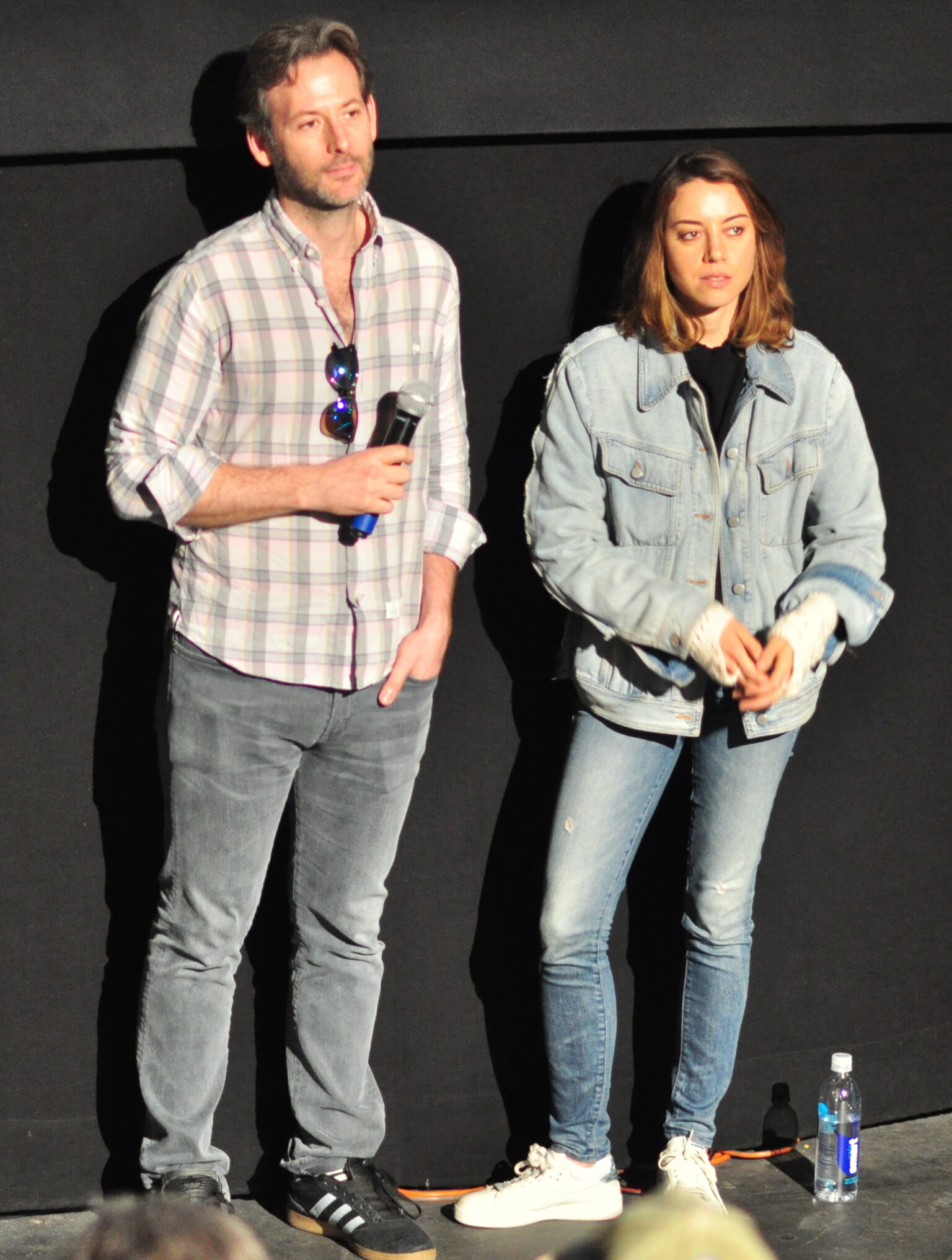Jeff Baena has made a name for himself in the world of independent film, blending humor with deeper themes in a way that resonates with audiences. From his early days in New York to his collaborations with notable actors, Baena’s journey as a filmmaker is both inspiring and intriguing. This article will explore his life, career, and the impact he has had on cinema, while also touching on the topic of Jeff Baena’s net worth.
Key Takeaways
- Jeff Baena’s background includes a film degree from NYU and early work with top directors.
- His directorial debut, ‘Life After Beth’, marked a significant turning point in his career.
- Baena has a strong collaborative relationship with actress Aubrey Plaza, influencing his films.
- His films often mix comedy with serious themes, showcasing unique storytelling styles.
- Understanding Jeff Baena’s net worth involves looking at his film earnings and overall success in the industry.
Early Life And Education
Background And Upbringing
Jeff Baena’s story begins in Miami. Not much is publicly known about his very early years, but it’s safe to assume that his upbringing, like anyone’s, played a role in shaping his creative vision. It’s always interesting to think about how someone’s childhood experiences might subtly influence their later work, even if it’s not immediately obvious. I wonder if the vibrant atmosphere of Miami seeped into his comedic sensibilities somehow?
Film Studies At NYU
Baena honed his craft at New York University, where he studied film. This period was crucial for him, providing a foundation in film theory and practice. Film school isn’t for everyone, but it can be a great place to network and learn the technical aspects of filmmaking. NYU, in particular, has a strong reputation for its film program. It’s a pressure cooker, but it can really push you to develop your skills. He was known for his work in film.
Influences In Filmmaking
During his formative years, Baena was exposed to a wide range of cinematic styles and directors. He mentioned that Fellini made him want to direct movies. Other influences include David Lynch, Robert Altman, Michael Ritchie, and Ingmar Bergman. These filmmakers are known for their unique storytelling techniques and distinct visual styles. It’s clear that Baena drew inspiration from a diverse group of artists, which likely contributed to his own eclectic approach to filmmaking.
It’s fascinating to consider how these influences manifested in his own work. Did he consciously try to emulate certain aspects of their films, or did their influence seep in more subtly? It’s something to think about when watching his movies.
Here’s a quick list of some of the directors that influenced him:
- Federico Fellini
- David Lynch
- Robert Altman
- Ingmar Bergman
Career Beginnings
Working With Renowned Directors
After film school, Jeff Baena made the move to Los Angeles, ready to break into the industry. He didn’t jump straight into directing, though. Instead, he started out as a production assistant. His early experiences included working for established directors like Robert Zemeckis, which gave him a solid foundation in filmmaking. This hands-on experience was invaluable, providing insights into the practical aspects of production and the collaborative nature of the film industry. production assistant
Transitioning To Screenwriting
Baena’s path wasn’t just about being on set; he also had a knack for writing. He began to shift his focus towards screenwriting, honing his skills in crafting stories and developing characters. This transition allowed him to explore his creative voice and lay the groundwork for his future directorial projects. It’s a pretty common path, actually – lots of directors start out writing.
First Steps In Directing
While screenwriting was important, Baena’s ultimate goal was always to direct. He started taking those first, crucial steps towards making that happen. This involved developing his own projects, pitching ideas, and building a portfolio that showcased his unique vision. It’s a tough climb, but everyone starts somewhere.
It’s interesting to see how many successful directors start in completely different roles. It just goes to show that there’s no one ‘right’ way to break into the industry. Sometimes, the best learning comes from being on set, observing, and absorbing everything around you.
Breakthrough With Life After Beth
Concept And Development
So, Life After Beth was kind of a big deal for Jeff Baena. It wasn’t just another movie; it was his directorial debut, and it showed off his quirky style. The idea apparently came from a breakup, which is pretty relatable, right? Instead of just making a straight-up zombie flick, he used the whole undead thing as a way to explore relationships. It’s like, what if your ex came back… but not really themselves? That’s the core of it. He wanted to play with the surreal and uncomfortable, and I think he nailed it.
Casting Notable Actors
For a first-time director, Baena managed to snag some serious talent. Aubrey Plaza, Dane DeHaan, and John C. Reilly? That’s a pretty impressive lineup. I think Plaza was perfect for the role; she brings this deadpan humor that just fits Baena’s style so well. Getting those actors on board probably helped the movie get noticed, too. It’s always easier when you have recognizable faces.
Reception And Impact
Life After Beth didn’t exactly break box office records, but it definitely made a splash in the indie film scene. Here’s a quick look at some of the reactions:
- Critics were divided, some loved the dark humor, others didn’t quite get it.
- It helped solidify Baena’s reputation as a director with a unique vision.
- The film showcased Aubrey Plaza’s comedic talent in a new light.
It’s one of those movies that people either love or hate, and I think that’s kind of the point. Baena wasn’t trying to make something mainstream; he was making something weird and personal. And that’s what makes it interesting. It also opened the door for future collaborations with Plaza, which have become a signature part of his career. Jewish director Jeff Baena’s work often explores complex themes, and this film was no exception.
Collaborations With Aubrey Plaza
Personal And Professional Relationship
Jeff Baena and Aubrey Plaza’s connection goes way beyond just making movies together; it’s a real partnership. They met back in 2011, bonding over their shared love for film. It’s pretty cool when you find someone who gets your passions, right? They even got married in 2021!
Having someone who understands the entertainment industry on a deeper level seems like a huge plus. They can support each other through the ups and downs of the business.
Key Projects Together
Aubrey Plaza has been a key player in many of Jeff Baena’s films. She starred in Life After Beth, Joshy, The Little Hours, and Spin Me Round. It’s clear they have a great working relationship. I mean, when you find a creative partner you vibe with, you stick with them, right? Their collaborations often showcase Plaza’s unique comedic timing and acting skills, perfectly complementing Baena’s quirky storytelling style. Life After Beth explores themes of loss and regret.
Impact On Baena’s Work
Aubrey Plaza’s involvement seems to have a significant impact on Baena’s films. Her presence brings a certain energy and comedic sensibility that’s become a signature of his work. It’s like she’s his muse or something. She’s not just an actress in his movies; she’s a part of the creative process, and that makes a difference.
Here’s a quick look at some of their collaborations:
- Life After Beth (2014)
- Joshy (2016)
- The Little Hours (2017)
- Spin Me Round (2022)
Exploring Themes In His Films

Blend Of Comedy And Drama
Jeff Baena’s films aren’t easily pinned down. He’s got this knack for mixing comedy and drama in a way that feels both natural and a little off-kilter. It’s not your typical sitcom humor, and it’s definitely not straight-up melodrama. Think of it more like life – funny, sad, and awkward, sometimes all at once. He’s mentioned before that he appreciates when drama is the priority over the comedy. It’s like he’s trying to show us that even in the darkest moments, there’s still room for a chuckle, and even in the silliest situations, there’s often a deeper truth lurking underneath. This blend is what makes his movies so relatable, even when the plots are totally absurd. It’s a tricky balance to strike, but when it works, it really works.
Unique Storytelling Techniques
Baena isn’t afraid to play around with how he tells a story. He’s not stuck on traditional narrative structures, and you can see that in the way his films unfold. He often uses improvisation, letting his actors bring their own ideas and energy to the characters. This gives his movies a really spontaneous, unpredictable feel. It’s like you’re watching something that’s being created in the moment, rather than a carefully scripted performance. He also likes to explore different perspectives and timelines, which can be a little confusing at times, but it also keeps things interesting. He’s definitely not afraid to take risks and try new things, which is what makes his storytelling so unique. He was influenced by David O. Russell, who taught him a great deal about writing and directing.
Cultural Commentary
While Baena’s films are often funny and quirky, they also have something to say about the world we live in. He touches on themes of relationships, identity, and the search for meaning in a chaotic world. He’s not preachy or heavy-handed about it, but he subtly weaves these ideas into his stories. For example, Life After Beth can be seen as a commentary on grief and how we deal with loss, while The Little Hours pokes fun at religious hypocrisy and societal expectations. It’s like he’s holding up a mirror to our culture and saying, "Hey, look at this! Isn’t it kind of weird?" He uses humor to make us think about serious issues, which is a pretty effective way to get his point across. Jeff Baena’s films delve into relationships with a unique blend of humor and emotional depth.
Baena’s films often explore the absurdity of modern life, using humor as a tool to dissect complex social issues and human relationships. He doesn’t shy away from uncomfortable truths, but he presents them in a way that’s both thought-provoking and entertaining.
Here are some common themes in his films:
- Existential angst
- The search for meaning
- The complexities of love and relationships
Recent Works And Projects
The Little Hours
"The Little Hours," released in 2017, is a comedy that takes place in a medieval convent. It features a stellar cast, including Alison Brie, Aubrey Plaza, and Dave Franco. The movie is known for its anachronistic dialogue and irreverent humor. It’s a pretty wild ride, and definitely not your typical period piece. I remember seeing it in theaters and being surprised by how funny it was. It’s one of those movies that you either love or hate, but it’s definitely memorable.
Spin Me Round
"Spin Me Round," which came out in 2022, is another collaboration between Baena and Aubrey Plaza. This one is a bit different, blending comedy with thriller elements. The story follows a woman who wins a company retreat to Italy, only to find herself in a bizarre and potentially dangerous situation. The film received mixed reviews, with some praising its originality and others criticizing its pacing and plot.
Future Endeavors
So, what’s next for Jeff Baena? That’s always the big question, right? While there aren’t any concrete details available right now about his next project, here’s what we can expect, based on his past work:
- Expect the unexpected. Baena isn’t one to stick to a single genre or style.
- Look for strong female leads. He clearly enjoys working with talented actresses like Aubrey Plaza and Alison Brie.
- Keep an eye out for that signature blend of comedy and drama. It’s what makes his films unique.
It’s safe to say that whatever Baena does next, it will be interesting. He’s a filmmaker who isn’t afraid to take risks and push boundaries. I’m personally excited to see what he comes up with next. I’m hoping for another collaboration with Aubrey Plaza, but I’m also open to seeing him explore new territory. Maybe a sci-fi comedy? Or a dark, psychological thriller? The possibilities are endless.
It will be interesting to see if he continues to work with frequent collaborators or branches out into new creative partnerships. Whatever he does, it’s likely to be something that challenges audiences and keeps us guessing. I’m excited to see what Jeff Baena’s filmography will look like in the coming years.
Legacy And Influence
Impact On Independent Cinema
Jeff Baena’s work, especially his early films, carved out a unique space within independent cinema. He wasn’t afraid to blend genres, often mixing dark comedy with more serious themes, which set him apart from many of his contemporaries. His films often felt experimental, pushing boundaries in terms of narrative structure and character development. This approach helped to redefine indie film for a new generation, showing that it was possible to be both quirky and thought-provoking.
Baena’s influence can be seen in the rise of filmmakers who are now embracing similar styles, unafraid to mix genres and explore unconventional storytelling methods. He helped pave the way for a more diverse and experimental landscape in independent film.
Recognition And Awards
While not always a mainstream success, Baena’s work has garnered recognition within the independent film community. His films have been screened at prestigious film festivals, earning nominations and awards that highlight his unique vision and storytelling abilities. Though he may not have achieved widespread fame, his contributions have been acknowledged by critics and peers alike. This recognition has helped to solidify his place as an important figure in independent cinema.
Influence On Upcoming Filmmakers
Baena’s impact extends beyond his own filmography. His willingness to take risks and experiment with different styles has inspired many upcoming filmmakers to forge their own paths. He demonstrated that it’s possible to create meaningful and engaging films without adhering to traditional Hollywood formulas. His work serves as a reminder that originality and creativity are valued, and that there’s an audience for films that dare to be different.
Here are some ways he influenced upcoming filmmakers:
- Encouraged genre-bending narratives.
- Promoted character-driven stories over plot-heavy ones.
- Showcased the value of dark humor in serious themes.
Understanding Jeff Baena’s Net Worth

It’s always interesting to look at the financial side of creative careers. When it comes to filmmakers like Jeff Baena, figuring out their net worth can be tricky. It’s not always as straightforward as looking at a celebrity who stars in blockbuster movies. Let’s break down some of the factors involved.
Sources Of Income
Jeff Baena’s income likely came from a few different areas:
- Directing Fees: He would have earned money for directing his films, like Life After Beth and The Little Hours. These fees can vary widely depending on the budget and scale of the project.
- Screenwriting: Baena also worked as a screenwriter, including co-writing I Heart Huckabees. Screenwriting credits bring in income, sometimes with residuals for future airings or sales.
- Production Roles: He may have taken on other roles in the production of his films, adding to his earnings.
Financial Success Of His Films
Independent films often operate on smaller budgets than big studio productions. This means that even if a film is critically acclaimed, it might not translate into huge box office numbers. The financial success of Baena’s films would have directly impacted his earnings. For example, a movie that does well in international markets can generate more revenue.
It’s important to remember that a director’s salary isn’t always tied to a film’s box office success. Sometimes, they receive a flat fee, while other times, they might get a percentage of the profits.
Comparative Analysis With Peers
Comparing Jeff Baena’s financial situation to other independent filmmakers can give us some perspective. However, it’s tough to make exact comparisons without knowing all the details. Here’s what we can consider:
- Budget Size: Filmmakers who work on larger budget independent films might command higher fees.
- Distribution Deals: A better distribution deal can lead to more revenue for the film and, potentially, for the director.
- Critical Acclaim: While not always directly linked to financial success, critical acclaim can lead to more opportunities and, therefore, higher earning potential in the long run.
It’s worth noting that while Jeff Baena’s exact net worth isn’t publicly known, his wife, Aubrey Plaza, has an estimated net worth of around $8 million, according to reports. This gives some context to the financial landscape of their careers, even though it doesn’t directly reflect Baena’s individual earnings. It’s all part of the bigger picture when understanding the financial success in the film industry.
Reflecting on Jeff Baena’s Journey
In the end, Jeff Baena’s story is one of creativity and passion. He started as a writer, crafting scripts that caught attention, and then took the leap into directing. His films, like "Life After Beth" and "The Little Hours," show his unique style and ability to blend humor with deeper themes. Baena’s work resonates with many, and his collaborations, especially with Aubrey Plaza, highlight a special connection in both their personal and professional lives. While his journey was cut short, his impact on film and storytelling will be remembered. It’s a reminder of how art can connect us, even in tough times.
Frequently Asked Questions
What is Jeff Baena known for?
Jeff Baena is a filmmaker famous for directing movies like ‘Life After Beth’ and ‘The Little Hours.’ He started as a screenwriter before becoming a director.
Where did Jeff Baena study film?
He studied film at New York University (NYU), where he graduated with a degree in film.
Who are some actors Jeff Baena has worked with?
Jeff Baena has worked with several actors, including Aubrey Plaza, John C. Reilly, and Dane DeHaan.
What themes are common in Baena’s films?
His films often mix comedy and drama, exploring relationships and unique storytelling styles.
What was Baena’s first film as a director?
His first film as a director was ‘Life After Beth,’ which came out in 2014.
What is the impact of Baena’s work on independent cinema?
Jeff Baena has made a significant mark on independent cinema, inspiring new filmmakers with his unique style and approach.















